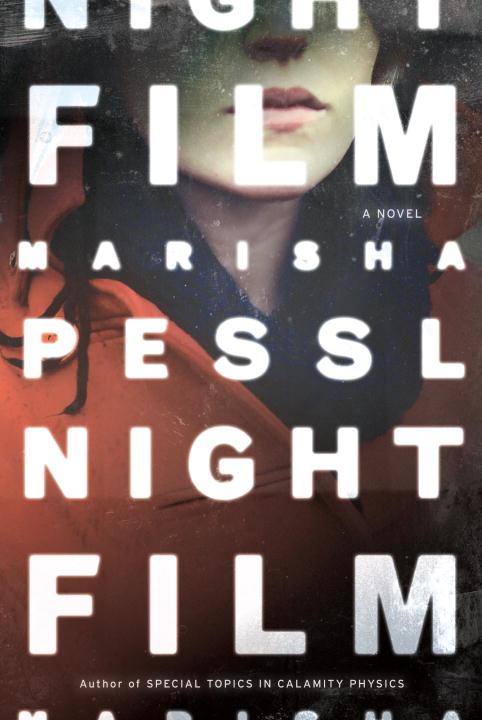There are about ten pages I would cut from Night Film, but they don’t transpire until the last sliver of the book, and by then, you are sprinting so breathlessly through the narrative because you cannot turn back from the resolution that is so very close. I forgive Marisha Pessl for those ten pages because the rest of the book is really fantastic.
To say this book is a page-turner is to cheapen it with cliché, so instead I’ll say that Night Film has usurped a book in my Top Ten list. I’m not sure which one gets the ax in order to make room for Pessl, but I’ll think on it and let you know.
It’s important to note before we go any further that Night Film is a psychological thriller. It’s also bit horror and a hair supernatural, two genres I don’t usually enjoy. In fact, there was one point during the story that I sat back, stared at the wall, and considered, “Shall I go further?” and then I realized that was a silly question. There was no turning back.
 Night Film begins with an eery prologue, a technique I don’t always love. If you’re gonna start a book, then just start it. I don’t like bait. But here, it works. Scott McGrath is a journalist (and our narrator) who’s nursing some professional wounds after failing to procure a reliable story about the elusive, enigmatic cult movie maker Stanislas Cordova. He’s also nursing a broken heart after losing his wife to a more successful man. So he’s running around Central Park in the dark when a girl in a red coat emerges from nothing. Wherever he runs, there she is. She is real, but not. He can’t decide. It spooks him. He’s unnerved, and thus begins the book.
Night Film begins with an eery prologue, a technique I don’t always love. If you’re gonna start a book, then just start it. I don’t like bait. But here, it works. Scott McGrath is a journalist (and our narrator) who’s nursing some professional wounds after failing to procure a reliable story about the elusive, enigmatic cult movie maker Stanislas Cordova. He’s also nursing a broken heart after losing his wife to a more successful man. So he’s running around Central Park in the dark when a girl in a red coat emerges from nothing. Wherever he runs, there she is. She is real, but not. He can’t decide. It spooks him. He’s unnerved, and thus begins the book.
The girl, we learn, is Ashley Cordova, the movie maker’s daughter and she’s just turned up dead at the bottom of an elevator shaft. Apparent suicide. The Cordova family is fraught with tragedy – too many to tragedies to be normal, McGrath discerns. And so, the puzzle sucks McGrath back into the twisted world of researching Cordova’s underworld of grotesque movies, which can’t be seen just anywhere, by the way. Think Stanley Kubrick, but darker. The man stays hidden and unseen. Think J.D. Salinger, but more ghostly.
McGrath collects two sidekicks along the way – Nora and Hopper – two young people with their own sordid histories (unrelated) and strange connections to Ashley (related?). I am being careful here because there is too much room for spoilers… In this book is every mind-bending possibility of why Ashley killed herself, if Ashley killed herself, and what has gone so magically, desperately wrong in the Cordova family that has allowed the patriarch to entice people into his grip for decades willingly, eagerly, knowing they may not be able to leave. In his darkness is his power. McGrath cannot leave him alone.
I must mention the extras. Pessl went further than text on a page by creating website pages, article clippings, photographs, and other remnants from Cordova’s life, which are all available to read and absorb inside in the book. Right after the prologue you’re given some twenty pages of web content from the New York Times that map out this bizarre man for its reader, which is unique way to set up a character you spend a lot of time wondering if you’re ever going to meet. Is it a lazy way to build a character? Some might say that, but I’m curled up in my bed thinking it’s a breath of fresh air. It’s fun. It’s different. It’s enticing.
I feel like I’m failing this review because I’m not giving you details, but I simply can’t give them to you. They must unfold for you in their natural habitat. You must read this book. You must get sucked into Cordova’s world and figure it out for yourself.
